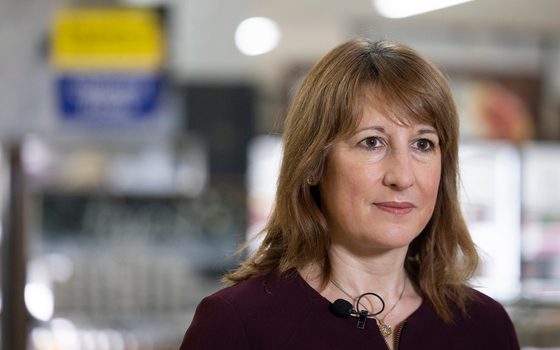The case for hope
Over a year since it began, and despite the vaccine rollout, we still don’t know how the pandemic will play out. But this uncertainty can actually be grounds for hope
28 July 2021
This is an article from the third issue of the New Economics Zine. You can read the full issue here
As the UK economy reopens after a long winter, the mood seems to be dividing into two camps. On one side, business confidence is reportedly soaring, with market sentiment buoyed by the prospect of a return to normality. On the other side are those with the sinking feeling that a return to normality is the last thing we need. The worst-case scenario is a disastrous third wave and another lockdown. The best-case scenario is a ‘business as usual’ recovery, squandering the opportunity for fundamental change.
This split is mirrored within the Labour party, which – despite leader Keir Starmer’s promises to bring ‘unity’ – looks more divided than ever. Those on the party’s right are filled with relief that the long nightmare of Corbynism is over, and ‘normal’ politics can resume. Those on its left are watching this spectacle with mounting despair, fearing that the radical change they hoped for is being cast into the dustbin of history at the very point when it is most urgently needed.
Yet there’s something odd about both of these positions. They are both characterised by a kind of certainty, a confidence about what the past tells us and what the future will bring, at a time when our actual condition is one of profound uncertainty and turmoil. I think back to last spring, when most people expected the pandemic to be under control within a few months. On the one hand, this led to ludicrous projections of a ‘V‑shaped recovery’ that have turned out to be complete fantasy. On the other, it led to many campaigners burning themselves out in the belief that this was the crucial moment of crisis where change would be won or lost.
During this time, I worked with a prominent MP who insisted that his project on the post-pandemic economy must be delivered within three months, because the window of opportunity for change would close very quickly. In his view, there was no time to do deep organising and participatory work: the need was too urgent. Over a year later, we are still in the eye of the global storm.
If nothing else, surely this experience should teach us to question our assumptions about what we are living through, what will come next, and how we should respond. There are still huge uncertainties about how the pandemic will evolve and its long-range impacts on the economy and politics. Of course, this uncertainty is extremely anxiety-provoking: it is a major part of the emotional toll the pandemic is taking, which can make us prone to exhaustion, burn-out and despair. But it is also the grounds for hope.
After 2017, the UK left had a newfound confidence – a growing belief that it was on the right side of history and that its ideas were winning the argument. By 2019, this had begun to ossify into hubris. The despair that many are feeling now is the mirror image of this hope, the painful crash back down to earth. But Rebecca Solnit, in her book Hope In The Dark, encourages us to embrace a different, more challenging kind of hope. As she puts it: “Hope locates itself in the premises that we don’t know what will happen and that in the spaciousness of uncertainty is room to act.” Positive change may yet come out of this experience of collective trauma: we just don’t know. I want to offer three reasons for this second kind of hope.
“Even if politicians want to go ‘back to normal’, the tectonic plates of the economy may be shifting beneath their feet in ways that make this simply impossible”
Solnit suggests that political and legal changes are often really just ‘ratifying’ deeper shifts – cultural, economic, intellectual. These shifts are themselves often hard won through patient and determined organising by people who never see the fruits of their labour. In other words, the current positioning of the official opposition is far from the only thing that will determine the future course of British politics. In fact, the direction of influence may ultimately be the other way around. And there is evidence that the pandemic may be accelerating these deeper shifts.
First, the cultural shifts. The pandemic has brought collectivist values to the fore in a way that has no precedent in my lifetime. Political leaders sagely declare that ‘none of us are safe until all of us are safe’. The explosion in the scale and reach of mutual aid shows that when push comes to shove, our survival instinct is to help each other. Of course, those involved in mutual aid before the pandemic already knew this – but recent events have seeded this understanding much more widely. Meanwhile, the gulf between the things we value most – our health, our family, our friends – and the things our economy values has become glaringly apparent. We now know who the real ‘essential workers’ are, and it has not escaped people’s notice that they are paid the least. The late David Graeber said it best: “if ‘the economy’ means anything, it is the way we provide each other with what we need to be alive (in every sense of the term)”.
More to the point, we don’t just know this anymore, we feel it. We have experienced it, directly and deeply, in a way that will leave its imprint on us all. For the generation coming of age during the pandemic, those experiences will be formative. Who knows what they will go on to do when it’s their turn to take charge? Who knows how these subtle shifts will ripple out into our culture and our sense of ourselves? The financial crisis, with its narratives of ‘greedy bankers’ and the 1%, if anything reinforced existing narratives about selfish individualism. But it seems highly implausible that those narratives will hold the same grip on our collective imagination after this.
Second, the economic shifts. Even if politicians want to go ‘back to normal’, the tectonic plates of the economy may be shifting beneath their feet in ways that make this simply impossible. The most obvious case in point is city centres. All the evidence suggests that office working and high-street retail will never be the same again. Shifts towards remote working and online shopping were already happening: the pandemic has just turbo-charged them. This means that the extractive property-led development models which have shaped cities like Manchester, where I live, may simply no longer be viable. City-centre commercial property giants are struggling; new developments are in doubt; for the first time in years, closures of big chain stores have outstripped those of small independent shops.
Of course, these shifts have negative impacts as well as positive ones, and much depends on how they are managed. It remains the case that, overall, the pandemic is exacerbating inequalities. But it is also profoundly disrupting old patterns of working, shopping and living – and the long-term effects of these changes are highly unpredictable. It is possible, perhaps even likely, that they will fundamentally reshape the UK’s economic geography – rebalancing activity away from London, changing the relationship between cities, towns and suburbs, favouring thriving local communities over ‘clone town’ high streets. This future is far from guaranteed, but that is precisely the point: what we do now matters.
Finally, the intellectual shifts. In October 2020, the International Monetary Fund (IMF) officially advised governments to keep spending to deal with the crisis – prompting the Financial Times to declare “the final nail in the coffin for the doctrine of austerity”. It is hard to overstate the significance of this. Yes, this government will still try to use the crisis to shrink the state – the public sector pay freeze shows us that much. Yes, the Labour Party seems not to have got the memo and is still paralysed by the fear of being seen as fiscally profligate. But this is not 2010. They are both swimming against the tide, the last bastions of a discredited intellectual position that has been publicly disowned by the very institutions that championed it.
Joe Biden, on the other hand, has very much got the memo. His $2tn stimulus package and calls for a global minimum corporation tax are signs that we are moving into a new world. This is what a paradigm shift looks like. Does it mean we are headed for the sunlit uplands? No. Does it mean that things can change for the better? Absolutely. Would it have happened without the movements behind Jeremy Corbyn and Bernie Sanders? We’ll never know – which is precisely Solnit’s point. But if we try to imagine an alternate universe where these movements never existed – where the new thinking and organising that flourished around them never took place and ‘socialism’ was still a dirty word – it’s hard to believe that world would be exactly the same as the one we’re in. For what it’s worth, the Financial Times credits both Corbyn and Sanders with helping to “swing the political pendulum in favour of more aggressive state intervention in the economy”.
“… now is not the time to toughen up. Now is the time to open up”
Yes, of course it’s not enough. We don’t just need more state intervention in the economy – we need a much more fundamental transformation of ownership and power. But looking around at the world today, I don’t find grounds for the certainty of despair. I don’t find grounds to believe that this deeper change is impossible. In any case, Solnit argues that if our criteria for success is utopia, we will always be disappointed. She suggests that we’re looking for change in the wrong place. We’re looking for the moment we win, the moment we can point to and say: this is when we fixed what was broken. For classical Marxists, it was the revolution. For those involved in the Corbyn and Sanders movements, it was electoral victory. But the real world is not so binary. Even if these events had come to pass, many challenges would have lain ahead. Indeed, this was the core argument that Joe Guinan and I made in our book on prospects for a Corbyn-led government.
Solnit reminds us that change is not linear, the world is not straightforward, and we can never truly know the impact of our actions. As Tony Benn famously said, “there is no final victory, as there is no final defeat.” He went on to say, “There is just the same battle. To be fought, over and over again. So toughen up, bloody toughen up.” This is where he and I part ways. As I look at the enormous suffering of the world and of those I care about, I think: no. Now is not the time to toughen up. Now is the time to open up – to let our shared trauma open our hearts to each other, and to let our shared uncertainty open our minds to the possibilities of our ever-changing world. And then to act, with hope and determination, to help build a better future.
Christine Berry is a freelance writer and researcher based in Manchester. She is currently writing a book on democratic ownership, due out with Verso in 2022.
Topics Zine Macroeconomics






